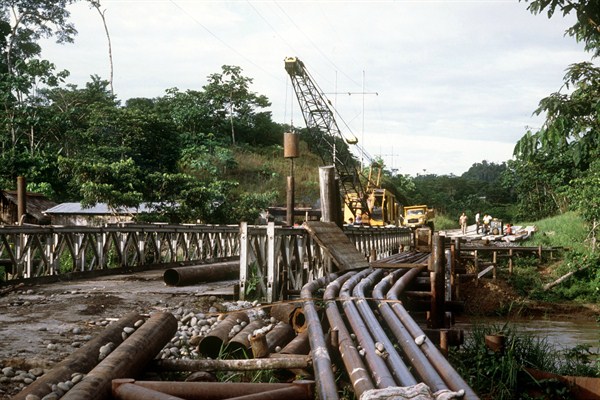Editor’s note: This article is part of an ongoing WPR series on the impact of falling oil and commodities prices on resource-exporting countries.
Ecuadorean President Rafael Correa defended his legacy last month in his last state of the nation address, saying that the current recession is the result of a perfect storm of falling oil prices and a strengthening U.S. dollar. In an email interview, Diego Grijalva, a professor of economics at the University of San Francisco of Quito, discusses Ecuador’s economy in the wake of the commodities bust.
WPR: How important are commodities for Ecuador’s economy, and what impact have falling commodities prices had on the economy and, in turn, domestic politics?

